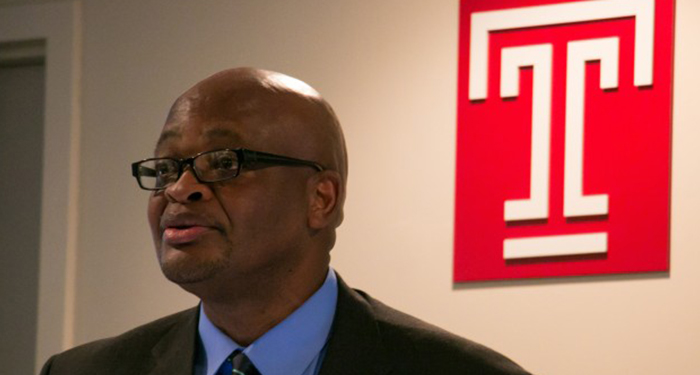
Dr. Imeokparia discussed Ecuador’s solidarity economy. Photo by JD Mousley.
Tim Imeokparia, director of research and planning for Great Cities Institute, spoke at Temple University solidarity economy of Ecuador and some of its theoretical benefits and shortcomings. The lecture was co-hosted by SMC, the Department of Geography and Urban Studies, the Global Studies Program, Academic Center for Research on Diversity, the Department of Agriculture, the Department of Architecture, the Department of Community and Regional Planning, and the Office of Institutional Diversity, Equity, Advocacy and Leadership.
“It [solidarity economy] is an economic practice that is non-economic,” Imeokparia said. Solidarity Economy is a push for a new economy, one focused on cooperation rather than competition. It is a system that is based on mutual assistance.
During his presentation, Imeokparia spoke about the theoretical benefits of the solidarity economy to Ecuador. He emphasized the ambition to transform Ecuador to an industrial or service economy. The idea of solidarity economy was written into Ecuador’s constitution in 2008. Since then, the government invested in roads, education, Internet access and more.
One such initiative is building a “City of Knowledge” in Yachay, Ecuador, complete with a university that will attract students and scientists.
But, Imeokparia noted, this vision is far from perfect—the strategy of solidarity economy falls short of expectations. “It becomes something ideological, it doesn’t transform the production matrix,” Imeokparia said. One reason for this issue, he said, is because the state is pressing for modernization, but the market isn’t ready for it.
Full Story from Temple University School of Media and Communication »


